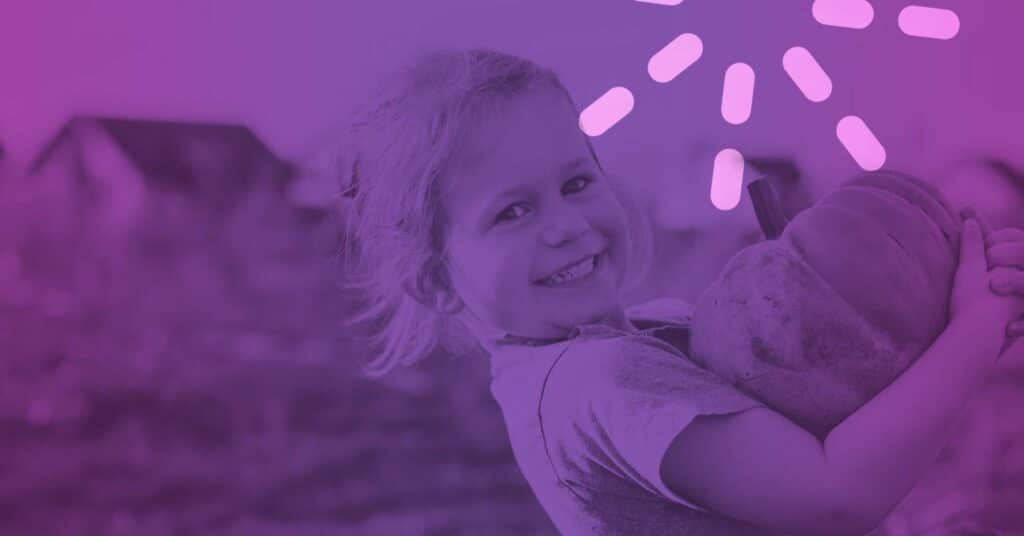In Matthew 19, we see large crowds following Jesus, listening to Him teach, and bringing sick people to Him to be healed. We see families bringing children to Jesus for Him to bless. But, for whatever reason, the disciples shooed them away and even spoke sternly to those who brought them. In response, Jesus says:
“Let the little children come to me, and do not hinder them, for the kingdom of heaven belongs to such as these. And he laid his hands on them” (Matthew 19:14-15).
I LOVE this story because, in the middle of teaching adults, Jesus takes time to bless the children. Despite the disciples trying to shoo them away, Jesus makes a point to remind them, and us, that God’s kingdom belongs to all kids!
Any time we read Scripture, we should reflect on what Jesus does and how that affects our hearts and ministries …
Are we letting ALL children come?
Are we hindering them in any way?
Do we shoo some away?
Are we keeping a message of equity and grace hidden from families that need it most?
Equity and Inclusivity
The biggest lesson I’ve learned in the last eight years of ministry is that my goal is equity—not equality.
While we’ve likely never met, I assume your hearts are dedicated and selfless—you’re leaders in children’s ministry!
There is little earthly reward in changing diapers or breaking up fights over Legos. Yet every week, we strive to make the time children are with us the best time of their week, teaching them and showing the love of Christ.
So, when I ask you to examine your heart and ministries, it’s time for a gut check—who can we do a better job of including?
Often, the answer to that question is kids with disabilities. My challenge for you is to make sure when we open our doors and minister to families throughout the week, we are letting ALL children come, not hindering ANYONE from taking a seat at Jesus’ feet.
It’s easy to forget about kids with disabilities. There are so many things we have to think about on a Sunday morning! But, Jesus gives a command: do not hinder them. So, how can we create an equitable and inclusive ministry that allows for all kids to come, no matter their abilities?
The biggest lesson I’ve learned in the last eight years of ministry is that my goal is equity—not equality. Offering the same program or support to each family is not helpful. There is no one-size-fits-all approach to any ministry really, but this is especially true for disability ministry.

Buddies
The most powerful tool I have discovered in ensuring equitable ministry is providing buddies. We purposefully chose the word ‘buddy’ because a buddy is a friend, guide, encouragement, and support for the child.
We liked the positive connotation and didn’t want to use therapeutic or educational language. When recruiting, we look for people anywhere from middle school to age 80+ who are compassionate, patient, have a willingness to learn, and, if possible, have experience working with kids with disabilities.
99% of our recruiting is done by word of mouth. Ministry leaders let us know of someone they think would make a great buddy, and our current buddies bring a friend they think would be interested. We interview each of our buddies, check references, and run background checks on all adults. Our goal is to have the same buddy with a child each week.
Relationship Building
The relationships between a small group leader and buddies have been something we’ve specifically worked on over the years. Our small group leaders are asked to build relationships with each student and their parents. Even though some children have a buddy, that child is still a part of their small group.
The buddy is the backup for the small group leader. They reinforce instructions, further explain biblical truths, help kids complete tasks, and facilitate social interactions with their group.
Seeing families connect not only with the buddy but with their small group leader is a huge win for us and lets our families know they have champions in their corner who are encouraging them and supporting their kids.
The Process
In most cases, families have contacted us before their first time on campus. They’ve heard about our program from a friend or been to our website, and then emailed us about their desire to attend. Here’s a brief overview of our process:
- We schedule a meeting with the new family (in person or via zoom)
- There are general getting-to-know-you questions, and we tell them a bit about our church
- We ask them a series of questions, gathering information about how we can best support their family (kids and parents too!) in all areas, including spiritually
- We create a bio for the child that gets distributed to their small group leader, children’s ministry staff, and, if needed, their buddy
- Lastly, we pair buddies with kids and introduce them to each other
While a buddy system can take a few weeks to build, there are some things you can do now to begin to create an inclusive and equitable ministry.
Seeing families connect not only with the buddy, but with their small group leader is a huge win for us and lets our families know they have champions in their corner who are encouraging them and supporting their kids.
Simple Ideas You Can Execute Now to Begin to Build an Inclusive Ministry
- Making sure you have accessible tables and seating for all kids: adjustable table heights, wobble stools or sit pads, standing room, areas of the class to get up and move but not distract others
- Making visual schedules each week for those that benefit from knowing what’s coming next, and when family comes to pick them up. Visual schedules really can benefit all students in the group, even those without disabilities!
- Having visual timers available for kids that need to know when it’s time to transition.
- Providing fidgets and sensory toys to help keep fingers, hands, and feet busy so ears can be open and focused on the leader.
- Having visual aids available for all leaders with simple pictures such as sit, stand, talk later, quiet, eyes on me, yes, no, etc. … so leaders can redirect without stopping their teaching. This allows the rest of the class to stay focused and encourages the student receiving the visual to get back on task.
- Training all leaders to give all students 8-10 seconds of wait time to respond to a question or instruction that is given. Sometimes it takes kids longer to process what’s being said. We shouldn’t assume they’re ignoring us when they’re processing. Repeating the instruction only resets their processing. Give them time.
You can do all of this COVID-19 friendly as well!
Accessibility Test
- Find a wheelchair: hopefully you have one in your building just in case it’s needed by a parishioner … if not, get one! You never know when you’ll need one. If you don’t have access to one, reach out to a congregant and ask if you can borrow one.
- Start in the parking lot at the furthest space from the door. Start to navigate your way into the church. Keep a notebook and pen on your lap to take notes (while realizing how difficult it is to navigate and not lose your pen)
- Head to the children’s check-in area. Is it accessible? Are there counter tops that are at wheelchair level? Do your greeters know how to approach someone in a wheelchair in an affirming way?
- Next, head to the bathrooms. Can you get in and out easily? Reach the sinks? Paper towels? Do everything that anyone not in a wheelchair can do?
- Now it’s time to head to worship. Is there a place you can go and not stick out and block the path for someone else? Do you feel like a part of the group or an appendage on the end of a row? Do your ushers know how to accommodate a family with a member in a wheelchair? Can you see the front of the room?
During Worship Time
- Does your church encourage families to bring kids into worship with them? If so …
- Do you have noise canceling headphones for those who find the music too loud?
- Are there fidgets, coloring sheets, books, etc. that might help little hands stay busy so little ears can be open and families can worship together?
- Do you have paths to bathrooms and quiet spaces clearly marked for kids who need a break?

Benefits of a Buddy Program
We recently had a new family reach out after finding our ministry on our website. In meeting with the mom, her two boys, and their grandma, they told us how astonished they were that a church offered a ministry that served their family in the way their boys (both with autism spectrum disorder (ASD)) needed.
The grandma was so excited to hear that the boys would finally be able to learn about Jesus. The mom was thrilled she could finally go to church and be able to focus on her own relationship with Christ, while knowing her boys were hearing about Jesus in a way designed for them.
The next week, she brought her friend and her son with ASD. She too had never heard of a church that could accommodate her child. Without an inclusive and equitable ministry, this family would not have felt welcome at our church.
The mom was thrilled she could finally go to church and be able to focus on her own relationship with Christ.
As humans, it’s our tendency to pay less attention to people who are different from us. As Christians, we are called to be inclusive, equitable, and gracious.
I’ve spoken with many families over the years that can’t hold back the tears when talking about how being included at church has helped their child not only participate alongside their peers but helped them grow in their faith.
We also witness how making our children’s ministry inclusive gives entire families a chance to worship and learn together as they all encounter Jesus. Let’s encourage each other as we seek God’s will and let the little children come, without hindrance, so each child might know and experience the love of Christ.

Did you know? David C Cook offers HeartShaper Children’s Curriculum, which includes special needs friendly activities that work well with all kids—each activity approved by special needs experts. Plus, HeartShaper offers free resources you can use in your ministry to kids with special needs. Check them out here!









